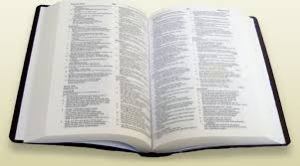In the wilderness prepare the way of the Lord, make straight in the desert a highway for our God. (Isa 40:3).
The Church today celebrates the Nativity of Saint John the Baptist. As Christians, we rightly commemorate the forerunner of Christ. John the Baptist leaped in the womb of his mother Elizabeth when Mary came to visit her. He lived in the desert and wore only camels hair, a rope around his waist, and ate locusts and wild honey. He was a preacher of repentance. He called people to be baptized. He baptized Jesus. He was humble to the point of realizing that he must decrease as Jesus was to increase.
John the Baptist is also a perfect model for desert spirituality and contemplative prayer. The Desert Mothers and Fathers took much of their inspiration from St. John the Baptist. St. Albert who began the Carmelite Order based their spirituality on Elijah’s work in the desert, but also refer to John the Baptist. St. John the Baptist is an important Saint for Monastics of all kinds including cenobites. The image of wandering in the desert and listening to God as one faces the realities of who one really is apart from all other attachments describes the perfect environment for contemplative prayer.
St. Benedict in Chapter 48, On Manual Labor in The Rule expressed concern that the hours for work be measured in moderation, so that the Brothers would have time for the prayerful reading of Scripture (i.e. Lectio Divina). One of the important parts of Lectio Divina is Contemplation.
We are invited today to consider carefully our need for solitude, prayer. As St. John the Baptist helped prepare the way for Jesus to enter into the hearts of those who would encounter Him; so must we do for ourselves. It is important that we make time in our deserts to search for God and love God, so that we may experience God. Contemplative prayer is about our experience of God in all aspects of our lives. Our experience of God becomes that much clearer when we “make a highway” for God in silence, solitude and prayer. Solitude and silence are essential to live in community with others, and become a pathway for others to encounter God in us.
May all of us make room for God as we look at the example of St. John the Baptist.
Amen.
Br. Anselm Philip King-Lowe, n/OSB

